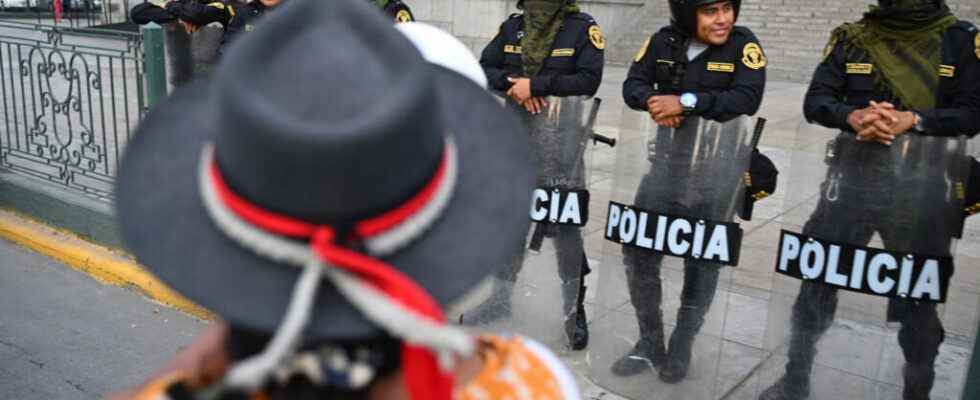The Peruvian government extended and prolonged the state of emergency on Sunday in the face of the revolt against President Dina Boluarte, which has killed at least 48 people in two months.
Seven regions in southern Peru (Madre de Dios, Cusco, Puno, Apurimac, Arequipa, Moquegua and Tacna) are affected by the measure, which will apply for 60 days, according to the official journal. On January 13, the government extended the state of emergency for 30 days in Lima, El Callao, Cusco and Puno.
The extension does not concern the capital, Lima, or El Callao, where the main maritime terminals and the largest airport in the country are located and where the state of emergency is due to end in mid-February. This allows the army to reinforce the police to restore public order. It also suspends constitutional rights like freedom of movement and assembly.
The government decree establishes a curfew from 8 p.m. to 4 a.m. for 10 days in the department of Puno, an epicenter of anti-government protests, where 18 civilians and a policeman were killed in clashes on January 9.
Almost daily demonstrations
Peru has been rocked by a political crisis, with almost daily demonstrations, since December 7, when the then president, Pedro Castillo, had been arrested after attempting to dissolve Congress and rule by decree. Roadblocks set up by protesters have led to shortages of food, fuel and other essential supplies in several areas.
The demonstrators demand the dissolution of Congress, a new Constitution and the resignation of Dina Boluarte, who as vice-president took the reins after the arrest of Pedro Castillo. Several attempts to pass a law to allow the holding of early elections have failed. The last was on Friday, in vain, thus blocking any new debate on the subject until August. On Saturday, violent street protests followed in central Lima.
The movement is led by poor indigenous Peruvians from the South. They see in Pedro Castillo, who also has humble origins and indigenous roots, an ally in their fight against poverty, racism and inequality.
►Also listen: International Report – Peru drags down the border town of Desaguadero in Bolivia
(With AFP)
